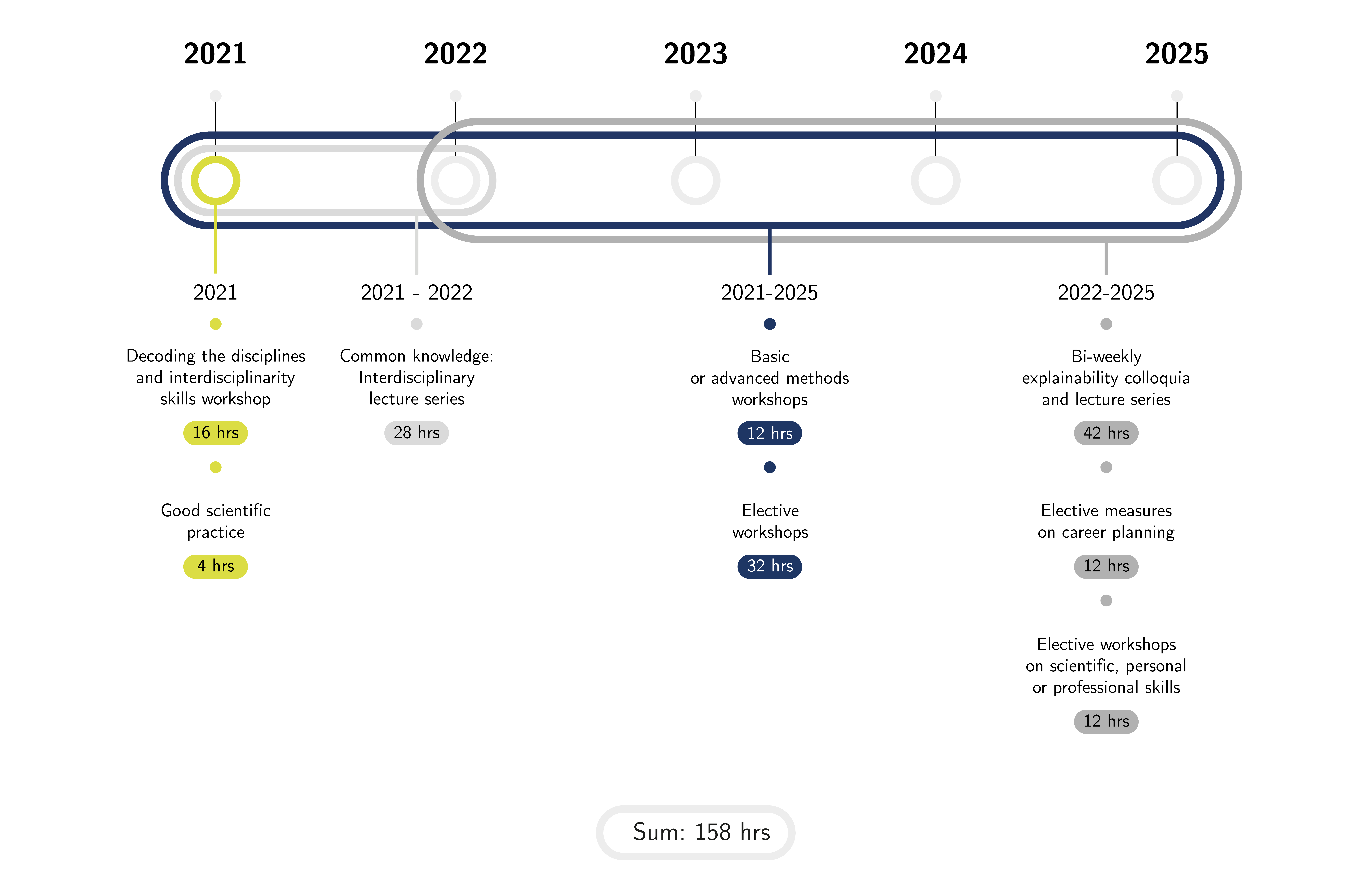Goals and elements of the RTG
Interdisciplinarity skills are vital for our TRR. Although interdisciplinary cooperation has its difficulties and pitfalls, the nature of interdisciplinarity is well understood and there are well-established training programs. Our qualification program relies on this knowledge. Its aim is two-fold: We want the scientists to achieve a deep understanding of individual disciplines and respect for their ways of practicing research, but we also want them to promote their agency in actively shaping disciplinary and interdisciplinary practices.
The qualification program consists of an initial kick-off workshop on decoding the disciplines and interdisciplinarity competencies (taking place in 2021) followed by a yearly refresh workshop, an inter- disciplinary lecture series and small grants for additional interdisciplinary projects developed and headed by young researchers.
The workshop program consists of colloquia, workshops (e.g., good scientific practice, advanced research methods, training in research methods outside one’s discipline, writing workshops, career-related workshops) and yearly writing ashrams. There will be a regular program, but individual elements can – and should – be negotiated with the RTG office.
The RTG aims to establish a close-knitted community of practice. The core network will be the RTG members --- (post)doctoral students and associated members), framed by the PLs as TRR members. Establishment of the core network is prepared by the common training program and the collaboration program. Networking is further supported by a common space for academic writing, either physical at each university or virtual. These writing rooms will be places where researchers can meet, write, work, talk, and experience the presence and practices of others. Writing rooms will be initially structured and supervised by the RTG officer to ensure a constructive working atmosphere and adequate support (in terms of tools, methods, consultation, and reflection), but doctoral researchers will be encouraged to take over responsibility for them.
Travel funds for conferences and extended stays at international institutions further strengthen the networks. RTG members are encouraged to visit international research groups for approx. 6–8 weeks. A short structured mentoring program will be offered.
The members of the RTG are strongly encouraged to make early plans for future career steps. Science and science-related fields are highly competitive, and it is necessary to plan different possible career paths and be distinctly aware of different possible options early on. The doctoral researchers will be able to attend a workshop for planning the postdoctoral phase. They will be encouraged to apply for individual research grants that allow them to develop their research profiles and gain experience in writing grant proposals. All RTG members will be encouraged to take part in lunch talks with persons who work on explainability-related issues in industry or administration.
The RTG places a strong emphasis on the scientific autonomy of the doctoral researchers. Autonomy will be fostered by the opportunity to negotiate individual training programs with the RTG officer, by the option to suggest and plan skills training workshops, to make suggestions for guest researchers, and to organize the three explainability conferences.

